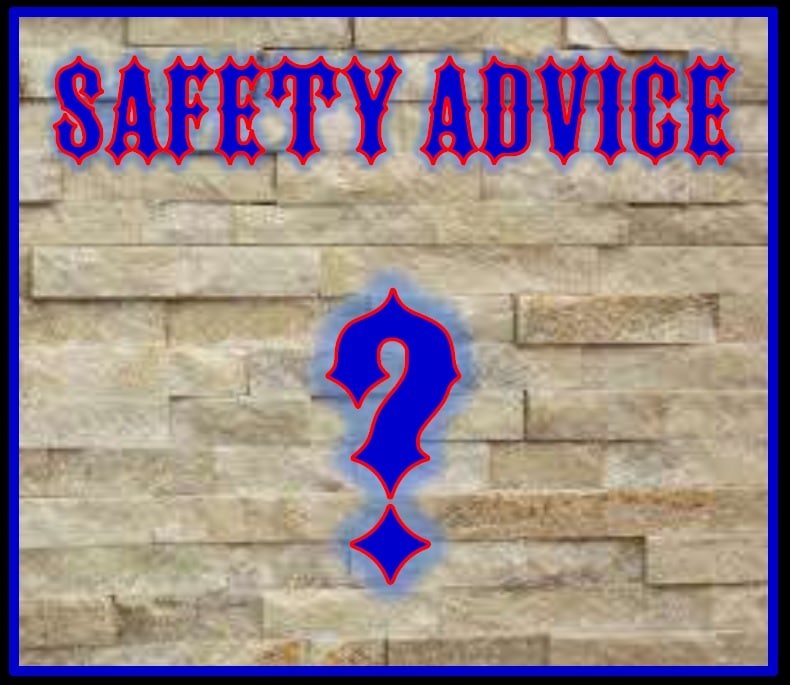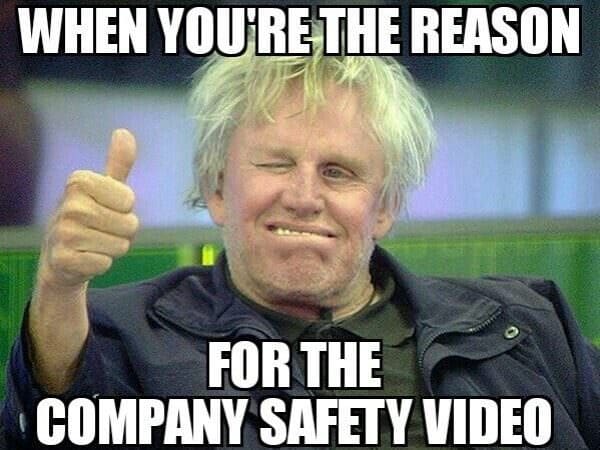Workers Safety Advice
Table of Contents
ToggleDo you have questions about your safety where you work? Different from years gone by, rules and regulations have become a lot stricter. Alone with deeper financial fines, and in some cases jail sentences for serious infractions. As a matter of fact, a common saying is "The regulations are written in blood". By the same token, do not let that blood be yours. If you need advice about your safety where you work, maybe we can help. If you have questions and require safety information, send us an email at [email protected].
In addition, we can also send you contact information to other sources for safety information. On the other hand, if you’re a worker, you might just have a problem understanding your companies own OH&S manual. This free advice service is just that, advice. For serious legal matters, we suggest calling WorkSafe BC. You can also check out our resource page Laws * Acts * Regulations * Associations for links to more sources for safety information and places to seek the correct advice.
From a blog I wrote: 8 Best Items What New and Young Workers Need to Know
More Safety Information and Sources for Safety Information
Construction
Construction Worker Safety is the most important thing on any job site. What New and Young Workers need to know before starting work can be overwhelming for some. Becoming frustrated, nervous, or even scared, are emotions that are best to be cast out or your mind right away. You're not expected to know a lot so don't worry, You will learn as time carries on.
Workers Safety Advice
These are the 8 Best Items that New and Young Workers need to know when starting their first job. Yet it all boils down to just one line. "Learn all you can about Construction Worker Safety"
-
The Night Before
Before you even arrive on your new site, a good sleep the night before is strongly advised. Pack a healthy lunch with fruits protein, and don’t forget liquids. Not energy drinks and pop. Rather sports drinks and water. Most sites have lunch trailers now and microwaves. A hot lunch is always nicer than cold sandwiches.
-
Wear the right clothes and PPE (Personal Protective Equipment).
Staring with your boots, make sure you spend some money on these. Ever drive a car with half flat tires? That’s what your feet will be like if you go cheap on the footwear. CSA approved with a minimum 8” upper, safety toes and shanks, with a rubber tread for good grip. Make sure to lace them all the way up. You’ll be wearing a vis vest over your upper body so again, be comfortable, not lost. A hard hat should have a ratchet adjustment so it can be tightened to your head. For gloves, the best to start with is the Latex Coated String Knit Gloves (white cotton with blue rubber on the palms). You can get a 12 pack for under $20.00. The job site should supply safety glasses and laser lite earplugs. All of this and more is for construction worker safety.
Cloths
Forget the blue jeans and track pants. Cargo pants I find are the best. Loss but NOT baggy. You want comfort and ease of movement, but you do not want them to catch on objects or machinery. Because they have pockets for knee pads, you’ll save your knees and use the leg pockets for your other stuff, not the regular pockets. When it comes to the upper body use layers of clothes like sweatshirts, not a thick jacket over a T-shirt.
-
Your First Day
Bring a notebook with you. On arrival, you should get a Job Site Specific Orientation, and possibly a New and Young Workers Orientation. Pay attention, take notes and if by all means, you do not understand something, don’t be afraid to ask questions. In addition, you’ll be told where to find the main notice board. It should be right by the site office. Read what’s up there and pay close attention to everything labeled “Emergency”, “Safety”, “Job Site Rules” and “Notice to Workers”. As well, learn where all the portable safety stations are, exits, and muster points.
-
Mentors
Hopefully, your company will assign you a mentor. Somebody who has a lot of years of experience and knowhow. Somebody who doesn’t cut corners, and always has construction worker safety as primary when working. A good mentor will instruct you on the trade your working in, along with something about other trades as well. Listen to them and take notes if needed. Ask question. There are no dumb questions at all. When it comes to construction worker safety, a smart person admits they don’t know something and will ask for instruction. Ask your mentor.
-
Think Before You Act
Two words that have become somewhat of an inside joke are the very two you need to have. Those words are Common Sense. However, you have to have some. With that being said before you begin any job task ask yourself “What can go wrong?” The answers you get will be the Hazards you’ll face and the Risks you’ll take. You want to minimize all hazards and risks as much as possible. Once again, if you don’t know, ask a mentor, foreman, or a senior person in your company on site. Furthermore, pay close attention to where heavy equipment is operating. Until you become a little experienced, it’s best to stay far away from these. The same could be said for mobile equipment. You will be instructed on how to work safely around these machines.
-
Don’t Overdo It
One thing that’s common in young workers is the feeling they need to prove something on a job site. Nothing is further from the truth. Lifting and packing more material than the other guy, and overly rushing from one point to another is not necessary. In fact, it’s one of the quickest ways to sustain an injury. Slow down and only lift what is recommended by the site rules. Still, there are some people who might yell for you to hurry up. Simply say “I’m sorry I’m not that quick, but I’m new here and still learning and don’t want to make any mistakes”. If you push your body too hard the first few days, around day 3 you’ll find it very hard to move.
-
After Work
One of the best things to do after a workday when your new is to review the day with your mentor or foreman. Ask if they noticed any mistakes you were doing. If it was something that you were unsure about at work, now’s the time for a quick question. But remember they want to go home to so 5 minutes max unless he has time and wants to educate you. There is another way to become more educated as well. Log onto the websites of your local construction safety associations, safety organizations, or government sites. These are places that have loads of safety information for you to learn from.
Pay close attention
Pay close attention to anything titled “SJP Safe Job Procedures” or “SWP Safe Work Practices”. Together with a good knowledge of your local government's Occupational Health and Safety Regulations and you’ll have the start to Construction Worker Safety.
-
Training and Education
If after a month you feel this is what you want to do, then start taking some construction safety training on your own. There are courses you should take prior to starting out in construction and that can be read about in one of my other blogs calledBefore You Go Buying Boots(sources for safety information). But if this is what you're going to do for a career then definingly read the blog just mentioned and take some training.


